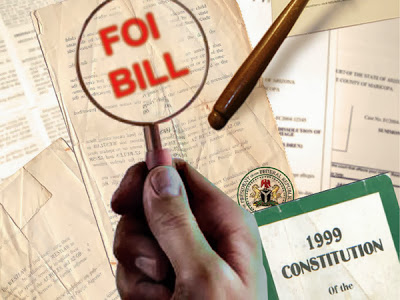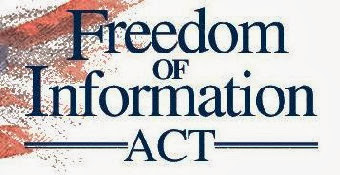
The essence of good governance in the administration of national agencies cannot be over emphasized especially with current global economic challenges happening around the world. Transparency and accountability are essential elements in governance and administration of public agencies. The Freedom of Information Act enacted by the Nigerian National Assembly empowers and entitles Nigerians to access public records and information or request information, whether or not contained in any written form, which is in the custody or possession of any public official, agency or institution.
The 2011 Freedom of Information Act is described in its preamble as
“An Act to make public records and information more freely available, provide for public access to public records and information, protect public records and information to the extent consistent with the public interest and the protection of personal privacy, protect serving public officers from adverse consequences of disclosing certain kinds of official. It should be noted that the courts recognise these rights as Section 1(3) and (6) of the Act provide that “any person entitled to the right to information under this Act, shall have the right to institute proceedings in the Court to compel any public institution to comply with the provisions of this Act”. Illiterates or persons who cannot request for public information due to their inability to write may also apply through 3rd parties.
Furthermore, the Act charges all public institutions in section 2 to ensure that it records and keeps information about all its activities, operations and businesses. All public institutions are also mandated by the Act to publish the following information-
– A description of the organization and responsibilities of the institution including details of the programmes and functions of each division, branch and department of the institution;
– Classes of records under the control of the institution;
– Manuals used by employees of the institution in administering or carrying out any of the programmes or activities of the institution;
– Substantive rules of the institution;
– Statements and interpretations of policy which have been adopted by the institution;
– Factual reports, inspection reports, and studies whether prepared by or for the institution;
– Information relating to the receipt or expenditure of public or other funds of the institution;
– The names, salaries, titles and dates of employment of all employees and officers of the institution;
– The title and address of the appropriate officer of the institution to whom an application for information under the Act shall be sent.

Public institutions are all authorities whether executive, legislative or judicial agencies, ministries, and extra-ministerial departments of the government, together with all corporations established by law and all companies in which government has a controlling interest, and private companies utilizing public funds, providing public services or performing public functions.
Where an application is made to a public institution under the Act, such information must be released to the applicant 7 days after date of request and where the public institution considers that the application should be denied, the institution shall give written notice to the applicant that access to all or part of the information will not be granted, stating reasons for the denial. Where a case of wrongful denial of access is established, the defaulting officer or institution commits an offence and is liable on conviction to a fine of N500, 000 and if fees shall be charged for the information requested it must be limited to standard charges for document duplication and Fees transcription where necessary.
A public institution may however deny an application for any information which contains records compiled by any public institution for administrative enforcement proceedings and by any law enforcement or correctional agency for law enforcement purposes or for internal matters of a public institution, but only to the extent that disclosure would-
(i) interfere with pending or actual and reasonably contemplated law enforcement proceedings conducted by any law enforcement or correctional agency,
(ii) interfere with pending administrative enforcement proceedings conducted by any public institution,
(iii) deprive a person of a fair trial or an impartial hearing,
(iv) unavoidably disclose the identity of a confidential source,
(v) constitute an invasion of personal privacy under Section 15 of this Act, except, where the
interest of the public would be better served by having such record being made available, this
exemption to disclosure shall not apply, and
(vi) obstruct an ongoing criminal investigation
(b) information the disclosure of which could reasonably be expected to be injurious to the security of penal institutions.
